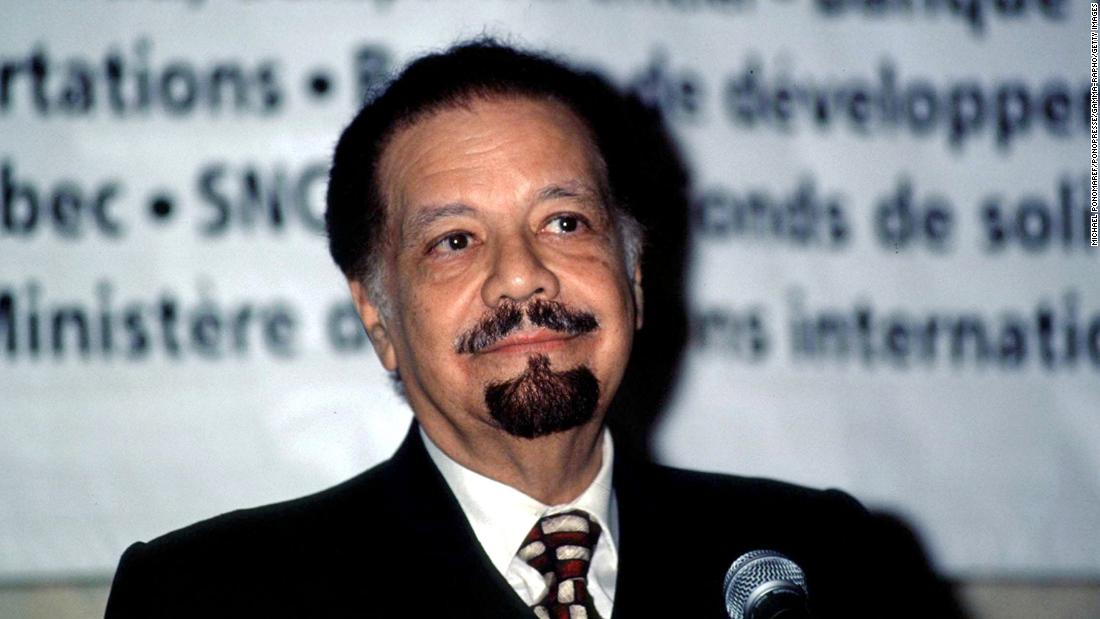Looking back on the crisis, Yamani told CNN in 2010 that “Arab oil [embargo] intended, and I was behind it, not to harm the economy, just to attract international public opinion that [there] it is a problem between the Palestinians and the Israelis ”. Yamani’s stated aim at the time of the embargo was to force Israel to withdraw from occupied Palestinian territory.
But the rapid rise in oil prices was a huge windfall for OPEC members. “Unfortunately, the money is very attractive, OPEC members love money and revenue. And that is why they raise the price as quickly as possible and pay the price for what they have done,” said Yamani.
The former oil minister told CNN that he did not regret the embargo. But he had doubts about OPEC’s subsequent efforts to dictate prices.
“I am sorry for what OPEC has done. You cannot really manage the price. It was a mismanagement of the price, a mismanagement of power,” he added.
At that time, OPEC controlled about 80% of global production, a far cry from its diminished status today. (Based on its own forecasts for 2021, OPEC’s market share has shrunk to about 30%.) The official story of the U.S. State Department crisis says that it “triggered a series of US attempts to meet the challenges of foreign policy stemming from long-term dependence on foreign oil. “These efforts included increasing domestic supply and, in 2019, the United States became the world’s largest oil producer.
Urban, elegant and fluent in English, Yamani studied at Harvard Law School before being lifted from obscurity by the future King Faisal to lead the Saudi oil ministry. At the time, Saudi Arabia was an intermediate producer. In a decade, it would be a giant. One of Yamani’s lasting achievements was to increase Saudi Arabia’s ownership (and revenues) of the kingdom’s crude oil production, which had long been dominated by the western consortium that formed Aramco.
In 1975, Yamani witnessed the murder of his mentor, King Faisal, by an unsatisfied prince.
It was a traumatic year for the young minister. On December 21, 1975, he and other OPEC oil ministers were taken hostage in Vienna by a group led by Carlos, the Jackal, the most notorious international terrorist at the time. A statement by the attackers called for a role “for the Arab people and other peoples of the third world” in dealing with oil resources.
The terrorists managed to get the Austrian government to supply a plane to take them, along with several ministers, to Algiers. Carlos planned to kill Yamani and Iran’s oil minister, Jamshid Amuzegar, but eventually agreed to release them after Algerian mediation.
Yamani’s fall resulted from King Fahd’s demand in 1986 that he guarantee an increase in Saudi Arabia’s export quota within OPEC – and cause the cartel to set a price of $ 18 a barrel. He was unable to fulfill the king’s goals and was fired soon after.
In his later years, Yamani said the price of oil was skewed by speculation, leading to volatile swings. And it wasn’t just speculation. He told CNN, “Don’t forget that politics is important. Anything can happen and it can ruin the oil business or bring it up.”
While staying involved in the world of energy, Yamani also delivered his passion for watches, poetry and the preservation of Islamic texts. He was a deeply religious man and the son of a celebrated religious scholar.
Yamani explored the opportunities of Saudi Arabia’s unique position as an energy producer at a time when the United States, Europe and Japan needed large quantities of its oil. In his interview with CNN in 2010, he said that oil would remain part of the energy matrix despite the increase in renewable sources, but acknowledged that it would not last forever.
“The stone age is not over for lack of stones, and the oil age will end, but not for lack of oil.”
